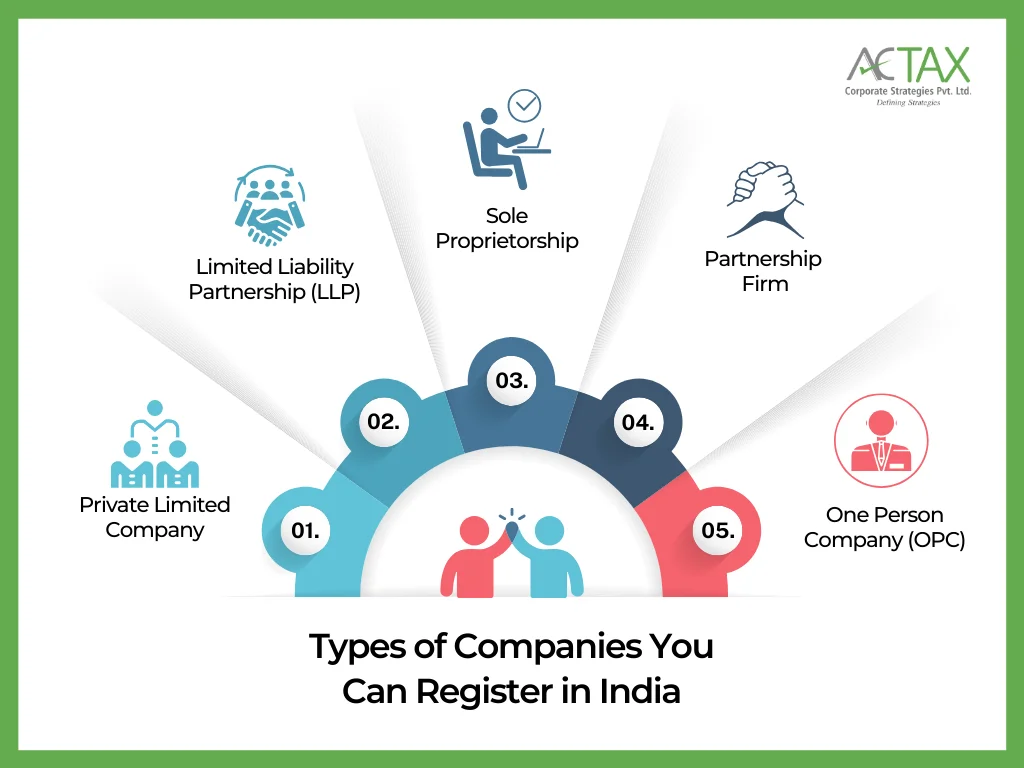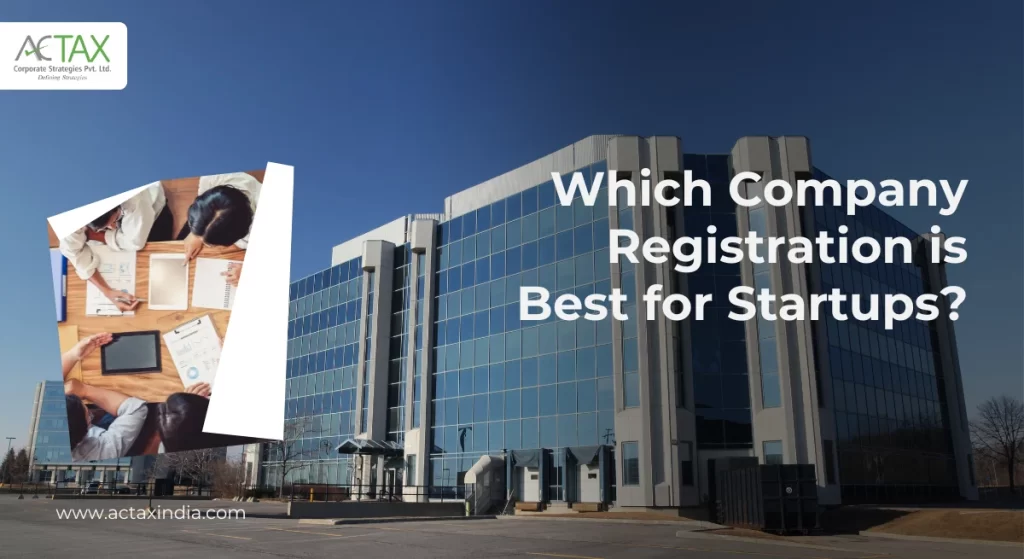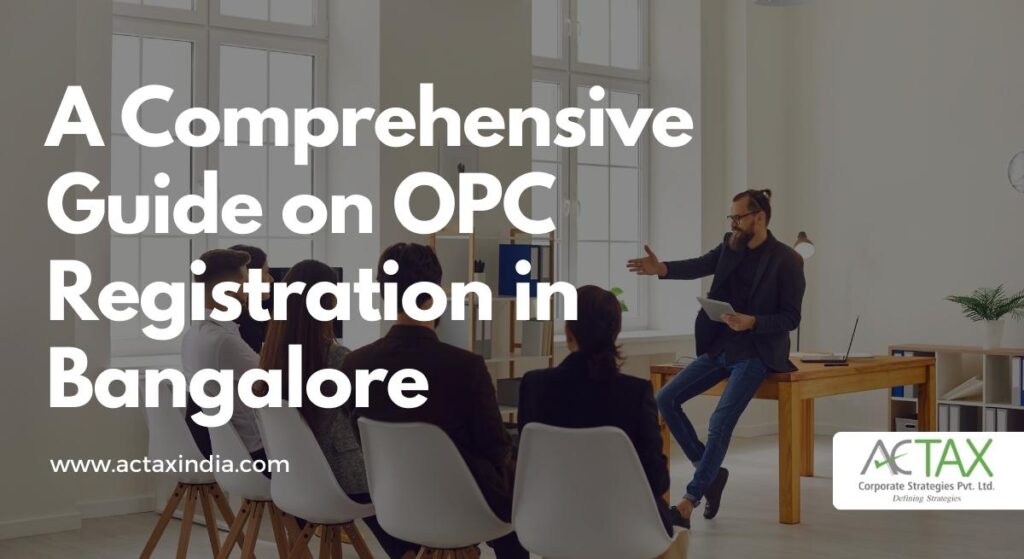Do you know that around 19% of startups fail due to legal missteps? All the hard work goes into vain by just one mistake- Choosing the wrong company registration!
It is no surprise that people are joining the startup world at such a tremendous rate; over 2.7 million new business applications between January and June of 2023 alone, 5% higher than last year. But the big question here is: which company registration is best for startups?
You would be surprised how important this decision is right from the start. Your business structure determines how much tax you’ll pay, and how it’ll be easy or hard to fundraise or deal with legal problems.
Now, let’s see what the different registration options are and what would work best for your startup.
Table of Contents
Why Choosing Right Company Structure Before Registration Matters for Startups?
Before jumping to the set of options, let’s talk about why you have to consult someone or prioritize more on choosing the right type of business structure is a top priority.
The startup scene is in full bloom — even with ups and downs in the economy. Over 871,000 employer-based business applications were filed in early 2023, 36% higher than pre-pandemic. This provides us the proof that people are still That’s proof that people aren’t avoiding starting a business, even in a tough market.
But here’s the catch—choosing the wrong registration type can get in your way. Without the right structure, you can’t stay in business, and you can’t raise money from investors or protect your personal assets. The reason why startups such as Perplexity AI and Melio secured millions upon millions in funding is that they got it right with their business setup early.
Then, which company registration is the best for startups to succeed? Let’s find out.
What Are The Types Of Company Registration for Startups in India?
Every structure has its pros and cons. The size you want to grow it, how much control you want to retain, and how you feel about paperwork will determine what you choose.

1. Private Limited Company (PLC) – Best for Fast-Growing Startups
If you are thinking big and looking to raise money from investors, registering a Pvt Ltd Company is probably the best option. That’s because this structure keeps your personal assets separate from your business, so if your business gets into trouble, your personal money is safe.
Most successful startups take this route because it makes it easy to get funded by venture capitalists and angel investors.
Perplexity AI, for example, raised over $915 million in Series C funding and is valued at $9 billion primarily due to its solid business foundation.
Why Pvt Ltd is Best for Startups?
- Protects personal assets
- It helps you to get funding from banks and investors.
- It builds credibility with clients and partners
- Offers tax benefits for startups
What to watch out for?
- Higher setup costs
- More paperwork and annual filings
A private limited company is probably the answer to Which Company Registration is Best for Startups looking for big growth if you’re serious about scaling and want to fund?
2. Limited Liability Partnership (LLP) – Best for Service-Based Startups
A Limited Liability Partnership (LLP) is halfway between a partnership and a private limited company. Learn more about the LLP registration process here..
According to BCL, LLPs are simple—less compliance hassle and your personal assets stay safe. If you want flexibility without the stress of heavy regulations this is a smart choice.
LLPs are good for service-based businesses like consulting firms, legal practices, and even creative agencies. This might be a good idea if you’re starting up a business with a co-founder and don’t want to bother yourself with overly complicated compliance rules.
Why does LLP work for Startups?
- Limited liability for partners
- Easier to set up than a PLC
- Flexible profit-sharing between partners
What to watch out for?
- It’s harder to raise money from investors
- While less intense than PLCs, compliance requirements still exist
If you don’t need to raise money from outside investment right away and have a co-founder, LLP may be the right answer to which company registration is best for startups. If you’ve decided to register LLP Company, then consult Actax Experts for expert consultation & hassle-free registration process.
Get Expert Insights on Company Registration with Our Experts
3. Sole Proprietorship – Best for Simple, Small-Scale Businesses
The simplest way to start a business is by forming a sole proprietorship. You and the business are the same thing legally, which means all the profits are yours, but all the debts and liabilities are yours, too.
Setting it up is easy, there’s no need to worry about complicated filings or board meetings. However, if you are looking to scale or take on investors, it’s not ideal.
Why Does This Business Structure Works For Single Enterpreneurs?
- Fast and easy to register
- No separate tax filing
- Low maintenance costs
What to watch out for?
- No protection for personal assets
- It is hard to get banks or investors funding.
A sole proprietorship is best if you’re planning to test out a business idea or get a gig as a freelancer, at least for now; it will answer the question of which company registration is best for startups.
If you are planning to start a new business, but are not sure what to do. Check out our exclusive guide on 10 Best Business Ideas to Start in Bangalore [With 0 Investment]
4. Partnership Firm – Best for Small Businesses with Co-Founders
A partnership firm is a sole proprietorship, with more than one person involved. You have equal (or predetermined) profit shares and responsibilities with your co-founder(s). While starting a partnership firm, you should not skip these 5 Essential Elements.
Setting up is a no-brainer, but there’s a huge drawback—each partner is personally responsible for the business debts. If your partner makes a bad decision, you may lose personal assets.
Why Does This Work for Small Teams?
- Easy to set up
- Flexible profit-sharing
- Low costs
What to watch out for
- Unlimited personal liability
- Partners can get messy when disputes arise
Partnership firms work well for small, low-risk businesses. If you trust your co-founder and are still small, this may be the right way to decide which company registration is best for startups.
5. One-Person Company (OPC) – Best for Solo Entrepreneurs with Big Plans
OPC is an abbreviation for One Person Company, it is built for solo owners looking to enjoy the perks of a private limited company but not having co-founders. You get limited liability protection, which means that your personal assets are protected if the business fails.
It’s the best of both worlds—a simple structure with the very professional image of a private limited company. Here’s what you should know about OPC Registration in Bangalore: A Comprehensive Guide if you are planning to start as an OPC in India.
Why it works?
- Protects personal assets
- Can be easily converted to a private limited company later on.
- Good for personal branding and credibility
What to watch out for:
- Annual compliance requirements
- Limited to one person only
If you’re a solo founder looking to grow as a startup an OPC might be the right choice for you when it comes to choosing which company registration is best for startups as a solo founder.
How to Choose the Right Company Registration in India?
To choose which company registration is best for startups, you should answer the below questions.
- What is my comfort level with getting personally liable?
- Do I need the investors to fund my idea?
- How much time or money am I prepared to put into compliance?
- Am I working solo or do you have co-founders?
What Are The Benefits of Choosing Right Company Registration for Startups?
We’re keeping the benefits simple. With the right business registration, you get:
- Personal asset protection
- Easier access to funding
- Tax benefits
- Professional Credibility
Conclusion: Which Company Registration is Best for Startups?
So the truth is, there’s no one size fits all. Your business goals, funding needs, and comfort with compliance will determine the best registration type.
- For fast growth and raising funds → Private Limited Company
- For a service-based business with co-founders → LLP.
- If you’re only starting small with limited risk → Sole Proprietorship
- If you want to keep it simple with shared responsibility → Partnership
- If you are a single entrepreneur but wish to get protected → OPC
Now is a good time to choose the right registration type so you won’t have trouble later. Take your time, look at your options, and set your business up for success from the start!






